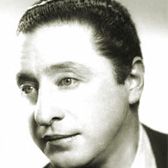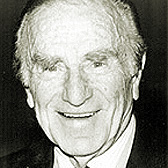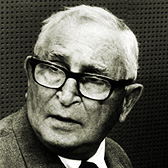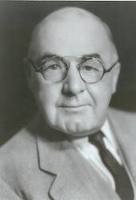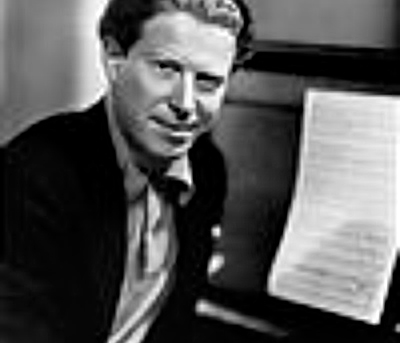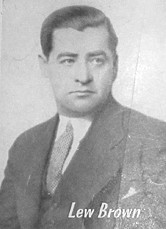
Top Tin Pan Alley lyricist in both New York and Hollywood.
Lew Brown
InducteeWrote “Don't Sit Under the Apple Tree With Anyone Else But Me" and “The Beer Barrel Polka.”
Lew Brown wrote lyrics for some of the most popular songs of the 1920s and 1930s as part of the songwriting team of De Sylva, Brown, and Henderson including “The Best Things in Life are Free”, “I Used to Love You But It’s All Over Now”, “Life Is Just a Bowl of Cherries”, “You’re the Cream in My Coffee” and “Sunny Side Up”.
He was born Louis Brownstein in Odessa, Russia on December 10, 1893. His family brought him to America in 1898 at the age of five and he attended De Witt Clinton High School in the Bronx, New York. While still in his teens, he began writing parodies of popular songs of the day; and eventually began writing original lyrics. His first songwriting partner was Albert von Tilzer, an already established composer fifteen years his senior, and in 1912 they had a hit with "I'm The Lonesomest Gal In Town". In 1916 the pair had another big hit with "If You Were the Only Girl" and in the course of the next few years they had a number of successful songs, one of which, "Give Me the Moonlight, Give Me the Girl", was revived in the 1950s by the popular British singer Frankie Vaughan.
In 1922, Brown met Ray Henderson, a pianist, and composer, and they quickly started writing songs together. Their first hit was "Georgette", introduced in the Greenwich Village Follies of 1922. In 1925, Brown and Henderson were joined by lyricist Buddy De Sylva, creating one of the most influential and popular songwriting and publishing teams in Tin Pan Alley.
With De Sylva and Brown collaborating on the lyrics, and Henderson writing the music, the threesome contributed songs to several Broadway shows including such as George White’s Scandals of 1925 and 1926 which featured the songs "The Birth of the Blues", "Black Bottom", and "Lucky Day". In 1928 the threesomes own Broadway musical, Good News, with a book co-authored by De Sylva, opened in 1927 and ran for 557 performances. Among its hits were “The Best Things In Life Are Free", "Good News", and "Lucky In Love". In 1928, Hold Everything! (book by De Sylva and John McGowan) opened and ran for 413 performances, making a star of Bert Lahr. The songs included “You’re the Cream in My Coffee”. 1929's Follow Thru, again with a book co-authored by De Sylva, ran for 403 performances and introduced “Button Up Your Overcoat” and in the 1930 production of Flying High, Brown for the first time joined De Sylva and John McGowan as book writer, as well, of course, as collaborating with De Sylva on the lyrics. Once again Bert Lahr was in the cast, and the show ran for 347 performances.
In 1929, De Sylva, Brown and Henderson sold the publishing firm they had founded in 1925 and moved to Hollywood under contract with Fox studios. Their first film was The Singing Fool, starring Al Jolson, and included the trio's hit songs "Sonny Boy" and "It All Depends On You". Say It With Songs, another Jolson film, including the songs “Little Pal” and “Sunny Side Up” and Just Imagine (the film version of Follow Thru based on their Broadway hit), were both released in 1930.
In 1931, De Sylva left the team to work with other composers, and Brown and Henderson continued working together producing “Life Is Just a Bowl of Cherries" and “The Thrill is Gone” (included in George White’s Scandals of 1931).
Brown collaborated with other composers, including Con Conrad, Moe Jaffe, Sidney Clare, Harry Warren, Cliff Friend, Harry Akst, Jay Gorney, Louis Alter, and Harold Arlen. In 1937, with composer Sammy Fain, he wrote one of the enduring classics of the American popular song, "That Old Feeling". In 1939, Yokel Boy opened on Broadway with a book by Lew Brown, and lyrics by Lew Brown and Charles Tobias (additionally, Brown produced and directed the show himself). Songs included in this production included “Don't Sit Under the Apple Tree With Anyone Else But Me" and “The Beer Barrel Polka” (with music by Jaromir Vejvoda).
In 1956, Hollywood produced a biographical film about the legendary threesome of De Sylva, Brown and Henderson, entitled The Best Things in Life Are Free. Lew Brown died two years after the release on February 5, 1958, in New York City.
Scroll to Discover Lew Brown Connections


